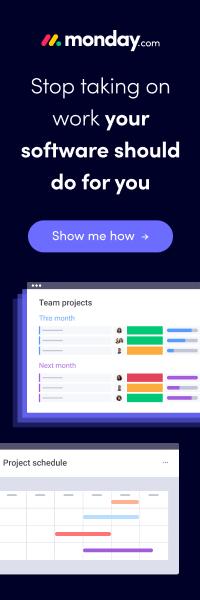With the onset of the pandemic, both organizations and professionals were forced to rethink how people worked. This became a pivotal point that drew attention to the many perks of remote work models.
For businesses, remote arrangements help access a wider talent pool, reduce employee costs, and minimize staff turnover and absenteeism-related risks. Employees, on the other hand, get to enjoy improved job satisfaction, greater flexibility and freedom, and better work-life balance.
According to some reports, an estimated 32.6 million people in the US—representing 22% of the total workforce—will work from home by 2025. It is no longer just designers and content creators who have adopted this setup. Those from other fields—from HR and software engineering to accounting and legal services—are also finding opportunities to build thriving careers from home.
But, accessing good jobs is often a struggle for those embarking on their remote work journey for the first time. Why is this, and what can you do to increase your chances of landing projects with top employers? Let’s find out.
Why Is It Difficult to Find High-Quality Remote Work?
If you are wondering what is stalling your remote career, here are five reasons likely contributing to it.
1. Your profile is incomplete.
A killer profile is critical for two main reasons.
- It helps you showcase your skills, experience, and knowledge and get noticed in a crowded marketplace.
- It allows you to build trust and credibility—an important factor for acquiring clients.
When your profile is incomplete, your clients have no way of finding out how good you are. It also creates doubt in their minds about your capabilities and professionalism.
When crafting your work profile:
- List down all your technical and soft skills, work experiences, educational qualifications, client testimonials, achievements, aspirations, and interests.
- Create a personal statement emphasizing why clients should hire you over others. Use simple language with a few power words scattered along the way. Seek help from a professional writer if necessary.
- Be creative in how you present all the information to grab and retain the attention of potential clients. Instead of relying on text-heavy content, use images, infographics, videos, and other dynamic formats.
- Design a portfolio highlighting your best work. A personal website is an excellent means to showcase it.
- Identify all the client touchpoints, from your personal blog and resume to social media handles and profiles on job boards. The information you provide about yourself should be consistent and complete across all these channels.
2. You lack experience.
Not every client would look for experienced professionals. However, many expect some form of prior exposure to the work they require done. And when your profile lacks sufficient details hinting at your experience levels, clients will likely give it a pass.
If this is an issue you are facing:
- Take up a few projects free of charge—you can volunteer for a non-profit, find an internship opportunity, or offer your services to a friend or family member. These jobs might not pay you, but they will give you enough to talk about on your resume.
- Apply for small-scale projects and tasks available at a lower pay scale and ensure you go out of your way to over-deliver. This will be useful for building your work portfolio and gaining positive client reviews.
- Work hard to develop your skills and apply them in personal projects. For example, if you want to offer web development services, create your own website first. It will help you test and improve your skills while serving as tangible evidence of your experience, which you can add to your work portfolio.
3. You are wasting time with online job scams.
What many newcomers to the gig economy do not realize is that the remote job market is rife with job fraud. Without knowing this, they can waste significant time applying for work that doesn’t exist or exploit job seekers.
To avoid scams:
- Use freelancer platforms with escrow facilities, on-platform communication tools, and mediation services.
- Go through a client’s profile before pitching for a job. Assess reviews left by previous employees and check how many times the client has hired against the number of projects they have posted.
- Be cautious when you are approached by a client outside a job board. Validate their authenticity by checking their websites and reviewing their LinkedIn profiles. If they have provided a contact number, reverse search it on Nuwber to verify their information.
- Never share personal or identifiable data with anyone offering work.
- Ignore job offers that require an upfront payment to submit a quote or resume.
4. You are looking in the wrong place.
Did you know your job search technique can prevent you from finding work? Remember, some freelancer platforms specialize in certain professions or specific types of work, which may not match your skills or expectations. When this is the case, you won’t find suitable work, no matter how hard you try.
To avoid it from happening, identify job boards that feature work in your area of specialization. An online search should help you determine the right platforms to be on.
In addition:
- Leverage your personal network and let your friends, family, and former coworkers know that you are offering remote services.
- Highlight your availability on your social media profiles.
- Apply for every opportunity that comes by. The more you try, the higher your chances of winning a project.
5. You are not communicating effectively.
Effective communication is an essential skill every freelancer must master. It can make or break a deal when you are hunting for work.
To leverage communication to your advantage:
- Ensure you understand the client’s requirements before drafting a proposal. Don’t hesitate to ask questions to seek clarification.
- List all the expectations, deliverables, and work terms with as much detail as possible. This will help avoid misunderstandings later.
- Follow up after sending a proposal or resume without being overly aggressive.
- Once you secure a project, ensure you maintain regular communications with the client by providing updates.
Key Takeaways
The gig economy has created lucrative opportunities for today’s professionals to pursue work they enjoy, gain improved job satisfaction, and achieve better work-life balance.
However, incomplete work profiles, experience gaps, and fraudulent job posts can prevent many remote workers from finding high-quality jobs. Focusing on the wrong job boards and poor communication are other critical factors affecting career success.
So, if you are struggling to find good remote jobs, identify what is hampering your progress and take effective measures to address it without delay. With the right approach, you can quickly secure a reliable workflow and build a thriving career.











